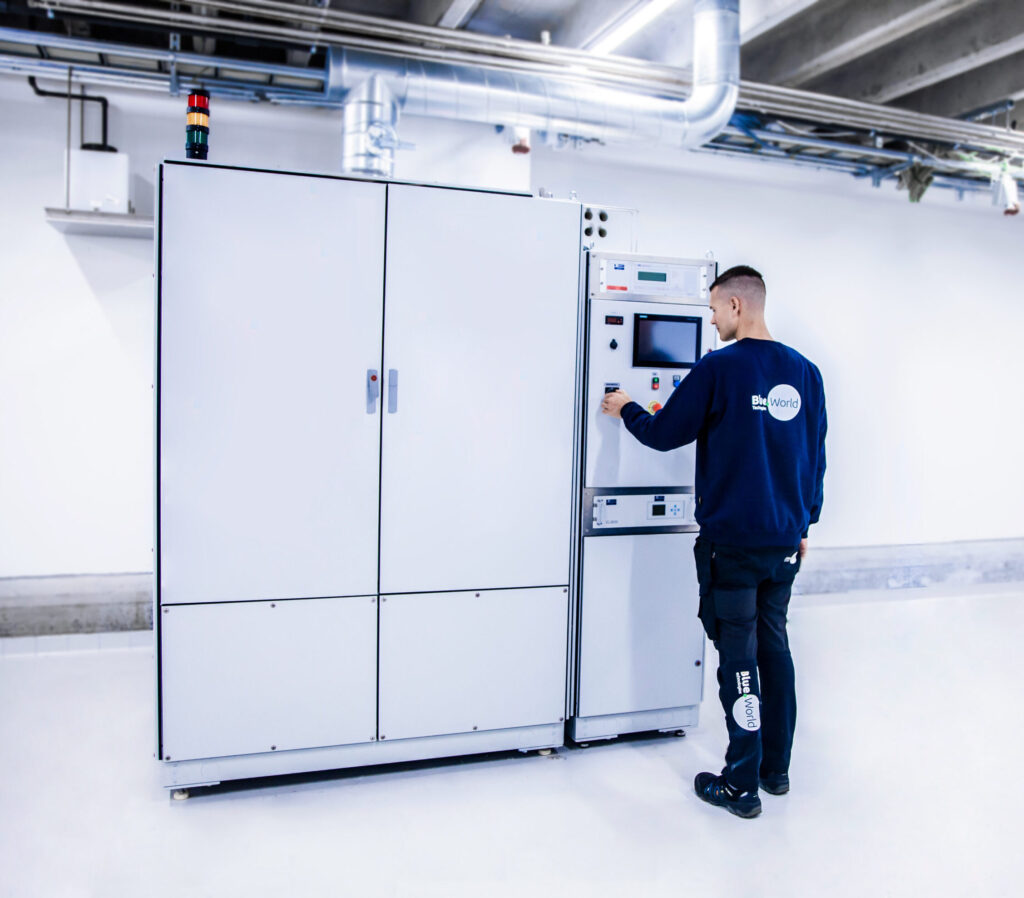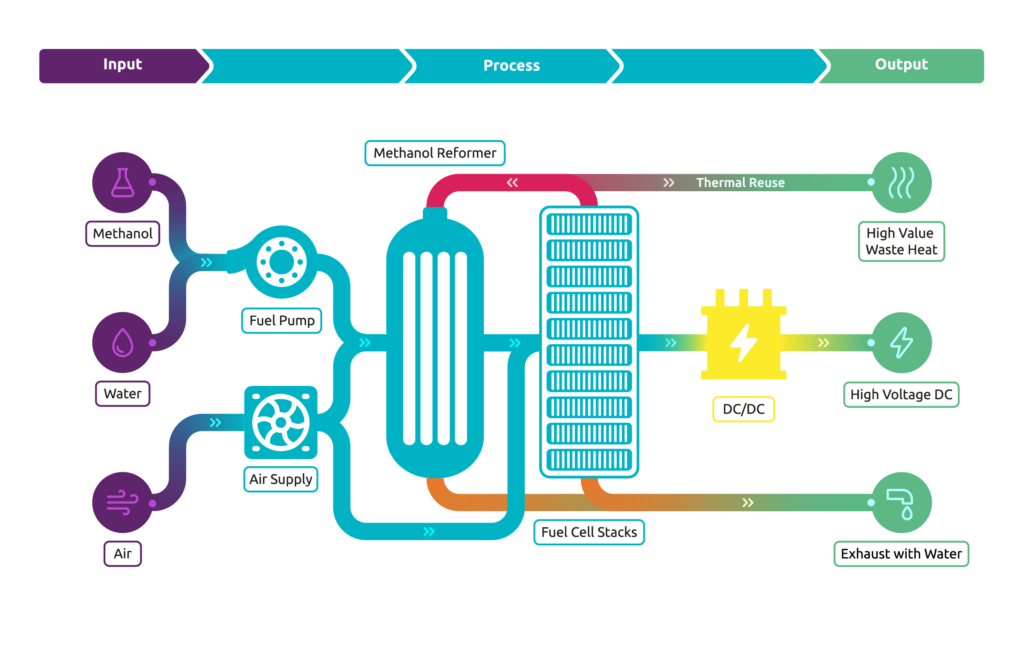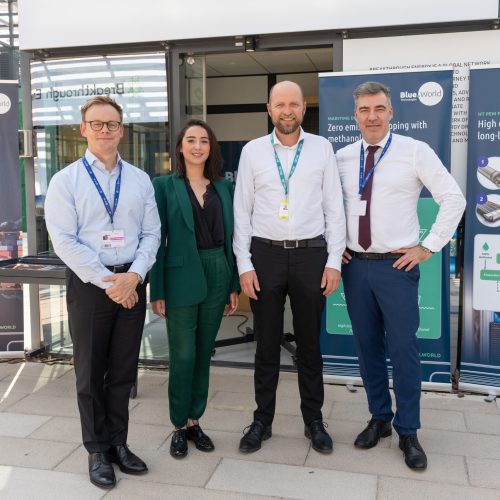The shipping industry accounts for around three per cent of global greenhouse gas emissions annually. With the development of a fuel cell-based APU system running on methanol, Blue World Technologies wants to accelerate the green transition of the maritime market.

Aalborg, 8 December 2022 – The Danish fuel cell manufacturer Blue World Technologies extends its activities in shipping. With a methanol fuel cell-powered auxiliary power unit (APU), the company wants to replace conventional diesel generators for power supply on board ships. Blue World Technologies is an ambitious and visionary developer and manufacturer of high-temperature proton exchange membrane (HT PEM) fuel cells and will start series production later in December 2022. The company’s focus on the maritime industry is supported by the Bill Gates-founded Breakthrough Energy Ventures, that in August 2022 entered as an investor and completed Blue World’s series-B round of a total of 37 million euros.
With the decision of extending the company’s activities within development and manufacturing to cover APU systems for marine usage, the company will be able to provide modular APU solutions in the megawatt range for direct integration in new builds as well as retrofits in existing ships.

The methanol fuel cell system of Blue World Technologies can supply the electricity needed on board a ship using a simple and modular cabinet configuration consisting of 200 kilowatts cabinets that combined can provide an energy load in the megawatt range. This means that the energy supply can be tailored to specific customer needs. To compensate for the green premium of e-fuels such as methanol, the Blue World methanol fuel cell APU system will have an energy efficiency of 45 to 60 per cent. This will lower the operating costs and thereby enable a cost-efficient use of e-fuels.
Renewable methanol is considered one of the most potential fuels of the future in shipping, as its use allows for climate-neutral operation. Globally, renowned shipping companies have started to upgrade their fleets to this green fuel. In addition to net-zero CO2 emissions, the Blue World fuel cells will ensure an operation where no NOx, SOx, and harmful particles are emitted.
In the coming years, Blue World will expand its production capacity and aims for taking a further step into the maritime market with methanol fuel cell systems for propulsion.

A modular configuration consisting of 200 kilowatts cabinets that combined can provide an energy load in the megawatt range.
The fuel cells are based on high-temperature PEM technology (operating at 160-180°C) that has a high resistance to impurities which means that no gas purification is needed on the reformat gas.
Unique for the HT PEM fuel cells is the potential for waste heat utilisation where part of the waste heat from the fuel cell is used to drive the process of reforming methanol and thereby optimising the total system efficiency. Furthermore, waste heat can also be used for additional energy recovery.
The fuel cell APU system will have a high electrical efficiency of 45 to 60%.
When powered by renewable methanol, the APU has a net-zero operation.
With no NOx, SOx, or particle emissions, the fuel cell APU does not cause any air pollution.



